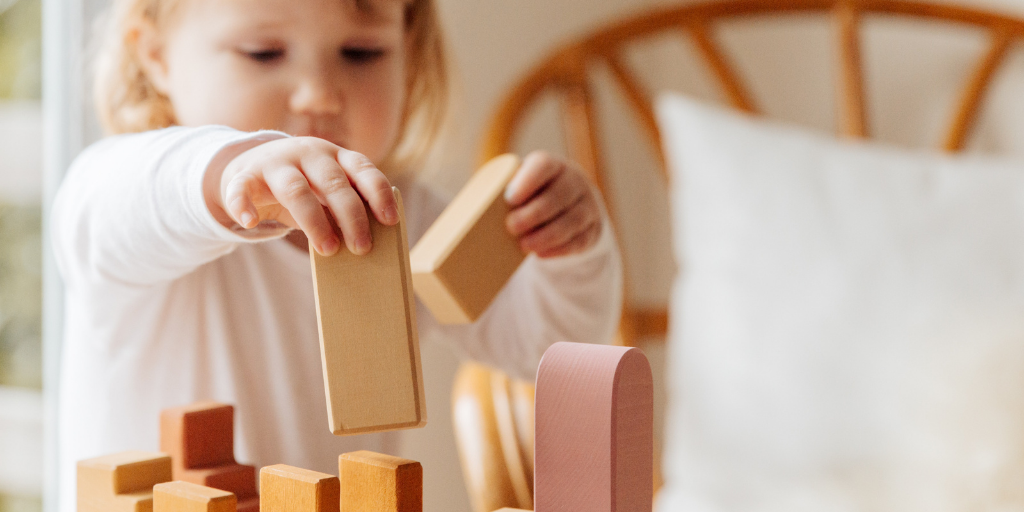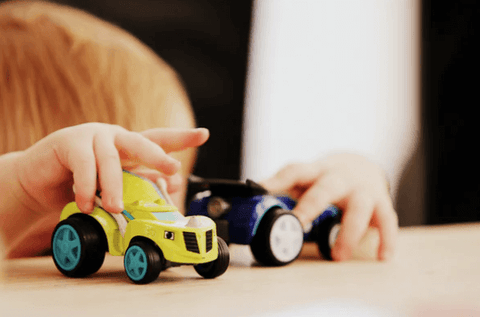
Theories of Toddler Development
As parents, this is a rewarding time watching your child learn and grow. You may be wondering what exactly is going on in that little brain, and what you can do to support your child’s development.Brain Development
Young Children from zero to three are immersed in the most rapid period of brain development in a human being's life. Did you know that from 0-6, more brain activity occurs during any other period in our lives? The brains of children from 12-24 months are no exception. During their transition from one year-old to two year-old, young children are changing from baby to toddler. Their brains and bodies are hard at work learning about the world around them and how to interact with it.
Toddlers brains are learning how to:
- Manage emotions
- Figure out how things work
- Use tools
- Move their bodies with more agility
- Pretend and use their imaginations
- Identify patterns in their day and expect routines
- And more!
Theory/Research
To understand toddler development, we typically turn to research, and what humans have shown us over time. There are two psychologists/child development researchers who are famous for studying this age, and their findings have proven true for decades.
- Jean Piaget, world-renowned early childhood researcher, says children at this age are in the sensorimotor stage of development. This means they are learning about the world around them through their five senses: sight, sound, hearing, touch and taste. This is important information, because it will help you to support their development successfully.
- Another important expert to turn to during this age is Psychologist Erik Erikson (also a stage theorist). According to Erikson, each person experiences a psychosocial crisis which could have a positive or negative outcome on their development. According to the theory, successful completion of each stage results in a healthy personality and the acquisition of basic virtues, or character strengths. Children from ages 1-2 are transitioning from his first stage, Trust vs. Mistrust, where the virtue of Hope, or the ability to depend on caregivers during a crisis occurs; and his second stage Autonomy vs. Shame, where the virtue of Will, or development of self-confidence occurs. This helps you in understanding children’s social/emotional development during this stage.
How to Support Your Toddler’s Development
So now that you have the background information about what is happening in your baby’s brain during this period of development, you may be wondering what you can do to help them. Well, the short answer is PLAY. And lots of it.
Here are a few tips for supporting the different areas of development in your toddler:
Cognitive: Puzzles, blocks, open-ended toys. See our article on Quality Toys for examples.
Language: Talk to your baby all day long about everything! Label things for them and encourage them to make sounds when they want something from you. And READ!
Gross Motor: Talk walks, visit the park, and provide opportunities for climbing whenever possible.
Fine Motor: Anything your child can pinch (cheerios, veggies) or squeeze (bath toys, sponges) are great for strengthening their fine motor skills.
Social/Emotional: Engage in pretend play with your child--this can be done easily by pretending to be an animal, playing with pretend food or playdough, etc. Being around other children is great at this age too. But don’t expect too much in the sharing department just yet. Toddlers aren’t quite developmentally ready for that skill.
Enjoy this magical period of development with your child!
|
|
Meet Our KeaMommy Contributor: Amanda Amanda Dixon is a mother of three young children and has her master’s degree in early childhood education. She spends her days homeschooling her kiddos, freelance writing and teaching college. Her favorite things are a good cuppa tea, chocolate chip cookies, books, and her 3 dachshunds. |



























































